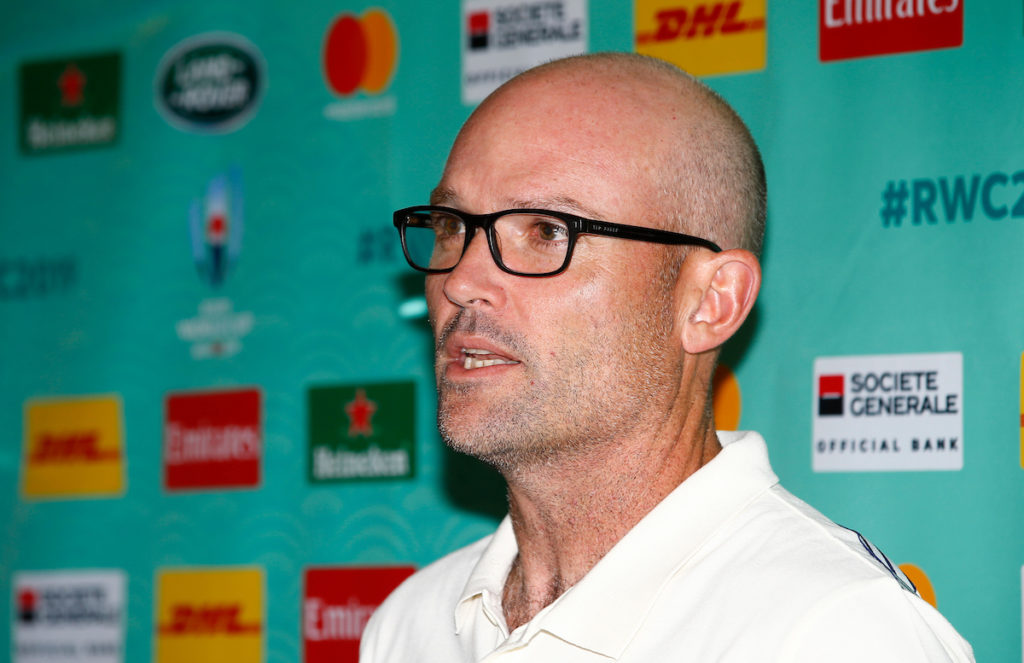Thanks to Rassie Erasmus and his likely successor the Springboks find themselves in an unprecedented position of strength, writes JON CARDINELLI.
The Boks won the Rugby Championship and the World Cup in 2019. They finished the season at the top of the World Rugby rankings for the first time since 2009.
The man behind the Boks’ most successful season in history has opted to step down. Erasmus will focus on his director of rugby duties in an attempt to improve the South African rugby systems and implement a strategy for sustained success.
Part of this plan will involve working with the next Bok coach and the team itself. When Erasmus was appointed in 2018, he said that he would coach the national side for two years before handing the reins to a successor. Erasmus often highlighted the importance of continuity and suggested that the next Bok coach would come from within the existing management team.
The obvious choice, in this and many other respects, is Jacques Nienaber. Aside from a friendship that goes back to the pair’s conscription days, Erasmus and Nienaber have established a strong working relationship following stints together at the Cheetahs, Stormers, Munster and the Boks.
No other coach knows Erasmus better. No man is better placed to build on what the Boks achieved in 2019 or to realise Erasmus’ vision for the future.
The players have responded to Nienaber and his methods. The performances at the recent World Cup should be held up as evidence, and the stat of four tries conceded over the course of a seven-game campaign certainly tells a story.
Other coaches in the set-up and the players themselves hold Nienaber in high regard. Erasmus has often marvelled at the manner in which Nienaber has motivated and communicated with the Boks over the past two seasons. Again, the results suggest that he is doing something right.
The Boks must grow in terms of their philosophy and approach in 2020. They should embrace new ideas and, when appropriate, experiment with the future in mind.
They should not, however, abandon the game plan and structures that catapulted them to the top of the world rankings.
The All Blacks got it right in that regard during their long reign at No 1 between 2009 and 2019. After establishing themselves as the best set-piece and breakdown unit on the planet, they sharpened their kicking game. They continued to add to their approach rather than start from scratch each season. It’s one of the reasons why they remained streets head of the chasing pack for the better part of a decade.
Continuity played a big role in the All Blacks’ success. Steve Hansen served as an assistant under Graham Henry between 2004 and 2011 before getting the head coach job in 2012. He then went on to coach the All Blacks for eight seasons. During that period, New Zealand scaled new heights and were, at their peak, described by many as the greatest team in history.
Erasmus has often said that the Boks will improve their chances of sustained success if they develop and retain coaches in this manner. Matt Proudfoot and Mzwandile Stick have progressed under Erasmus after struggling under Allister Coetzee. One would hope that the pair, as well as fitness guru Aled Walters and others, are retained in the new regime.
It’s encouraging to think that the Bok coaching unit that laid the platform for a World Cup triumph – and ultimately the team itself – can grow even stronger in the years to come.
Photo: Steve Haag Sports/Hollywoodbets





